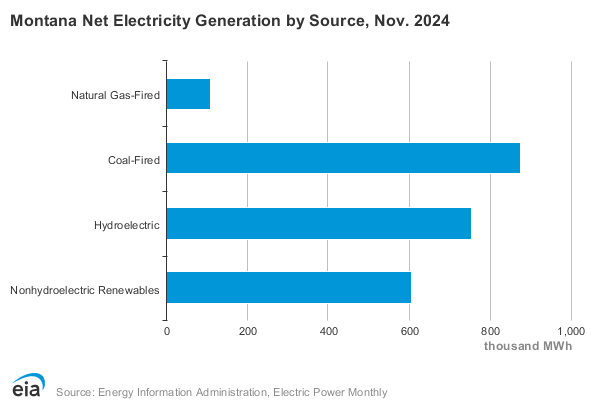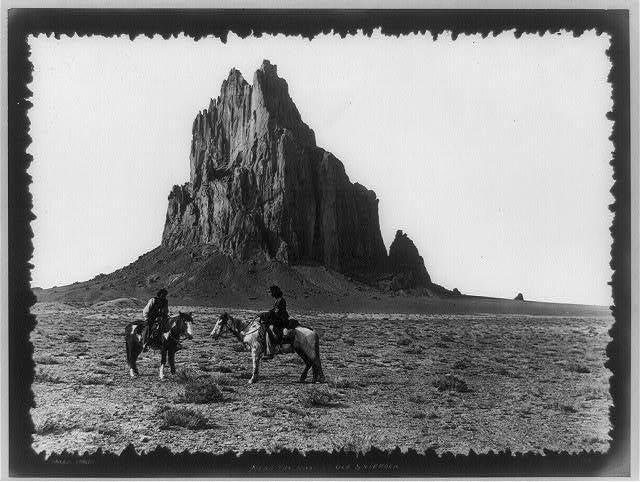Big Nuke Country
Montana’s push for nuclear and the defense of the American tradition
Last week, Montana took a step forward in nuclear power development when HB 623 left committee. The bill allows nuclear power plants to store their waste on-site, aligning the state’s regulations with the majority of the country. Without this bill, potential nuclear developers and operators would find themselves left in the lurch, waiting for the federal government to develop a national waste disposal site.
The Treasure State has been moving in a pro-nuclear direction since 2021 when it repealed its nuclear moratorium — a creation of late-1970s degrowth politics. In 2022, the state published a study looking into the feasibility of advanced nuclear reactors. Nuclear could provide Montana with a robust offramp from coal power, the report concluded, and could thus allow the state to increase its power supply and drive down power costs.
However, environmental organizations have their fangs sunk deep into the state’s political edifice, which jeopardizes the development of any baseload power at all, let alone nuclear. Forward movement on anything from burning fossil fuels to splitting atoms will mean direct confrontation with a political ideological force militated against America’s founding principles.
I. A Purple Haze
Montana has been blessed with extensive natural resources. According to the EIA, the state boasts “the nation's largest recoverable coal reserves, which is 30% of the U.S. total.” Back in the day, its copper deposits transformed the state into the material backbone of electrification as men ripped the ore that lit up America out of the earth by the ton. No surprise that a state replete with industrial labor became a hotbed for unions, once a major constituency of the Democratic Party.
Yet this blue path dependency left Montana vulnerable to the environmental movement, which broke from its bi-partisan moorings in the 1970s and emerged as a strictly left phenomenon. As a result, Montana found itself saddled with the aforementioned nuclear moratorium in 1978 and a new amendment to its state constitution that guaranteed its citizens a right to a “clean and healthful environment.” Since then, the state has moved, for the most part, rightward.

For years, this line in the state Constitution has held back efforts to build infrastructure and grow the economy. The most recent flashpoint came last year: when the legislature moved to remove greenhouse gas emissions considerations from the Montana Environmental Policy Act, a group of teenagers sued the state, alleging that the reform would not protect them from climate change and thus violated the state constitution (Held v. Montana).1
Readers may wonder why state courts in deep-red Montana have emerged with some of the most radically progressive decisions in the nation. This is where an interesting wrinkle in Montana politics comes in: the state elects its supreme court justices, but lefty trial lawyers dominate the funding for political action committees dedicated to supreme court candidates. As a result, the Montana supreme court skews blue. Thus, the state’s supreme court upheld the district court’s decision on Held. The right to a clean and healthful environment now means the right to a climate change-free (and a MEPA-constrained) environment for Montanans.
The consequences of this decision for Montana will be profound.
"The Held decision opens the door to endless litigation against nearly all economic activity in Montana, posing one of the greatest threats to the feasibility of energy projects,” Tanner Avery, the Policy Director at the Frontier Institute, told me. “Whether it's wind, solar, fossil fuels, coal, geothermal, or nuclear, all energy projects — including our most vital ones — are among the most vulnerable to a vague, unpredictable permitting process and the frivolous litigation it encourages."
One insider I spoke to suggested that the precedent in Held is technically judicially enforceable, a huge violation of the separation of powers. Within Montana’s Public Service Commission, green NGOs now have a foothold to pressure the state away from fossil fuels and nuclear. Last year, 40 organizations filed a petition within the PSC demanding that utility planning incorporate the adverse climate impacts of greenhouse gas emissions. The unions within the state hit back in opposition to the petition, in an episode that symbolizes the divide between the old and new Democratic Party constituencies I’ve written about before.
At an existential level, this is dangerous for Montanans. Thanks to its brutally cold weather, the state’s residential energy consumption is the highest per capita in the country. But at a higher level, this judicial coup over energy policy represents a threat to the American way of life as handed down by the Founding Fathers.
II. With Malice Toward Some
Given the backdrop of political conflict, forging ahead on nuclear in Big Sky Country represents not just a fight for saner energy policy, but a defense of natural rights. The motivating principles behind the judicial coup in Montana stand in direct opposition to both the separation of powers and self-evident truth of human equality.
But it’s fair to ask what these motivating principles are and how they conflict with the American tradition of natural rights. In a previous essay, I lay out the defining commitment of environmentalism as expressed by Aldo Leopold:
Leopold wanted to change “the role of Homo sapiens from conqueror of the land-community to plain member and citizen of it.” Man was “only a member of a biotic team” and thus had obligations not just to the political community, but to that “natural” community that was equal in weight and consequence.
The point here isn’t to dunk on Leopold, who was not the first to argue along such lines, but was the most artful and thus influential. Rather, I want to emphasize how what appears high-minded and merciful – the elevation of plant and animal life into the realm of natural rights imbued in humanity – does not, in fact, elevate anything. Instead, it relegates man to the status of an animal to be managed.
In Montana’s case, the managers represent niche interests and believe that they have fastened onto scientific truths so vital that they must be pressed upon the people via the abuse of law. The liberty to cultivate the resources of the earth for our benefit cannot exist in this paradigm. Montana’s progress toward nuclear is a defense of this liberty and a defense of the American tradition. Let’s hope Montana’s lawmakers see the wisdom in such a defense as HB 623 heads to the floor.
Related Articles
The Nuclear Khanate of Illinois Ascendent? The Land of Lincoln’s Bi-Partisan Push to Unleash the Atom
The Cryptid That Almost Killed A Dam. A fake fish, left politics, and environmental law
Crom’s Blessing
If you want a look into the absurdities that went into this case, you can check out some of the coverage from Travis Fisher here.




Given the Republican’s dominance politically in Montana, it’s long past time to focus on the judiciary, starting with the Supreme Court. Regarding “NGOs” in this state, how many are funded by USAID and other traitorous government entities? Hopefully DOGE will defund them asap!
Thank you for your work. Interesting article.